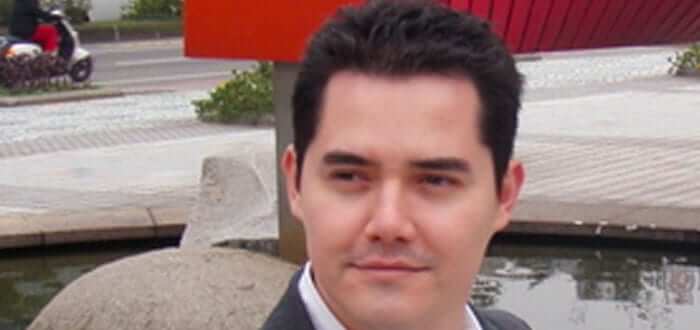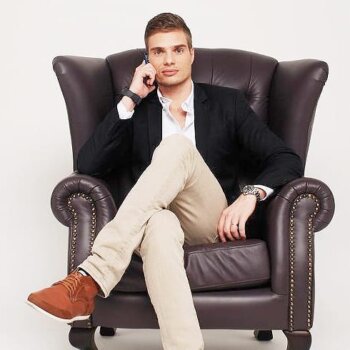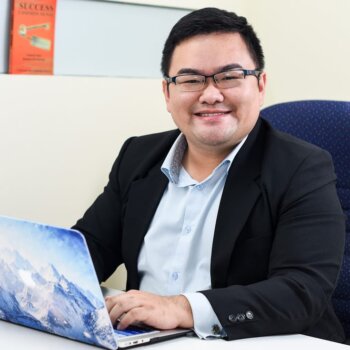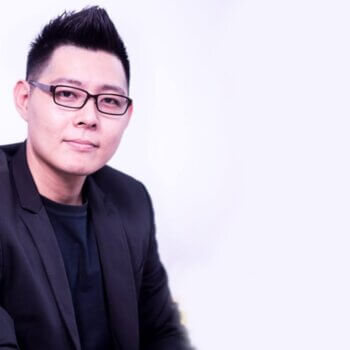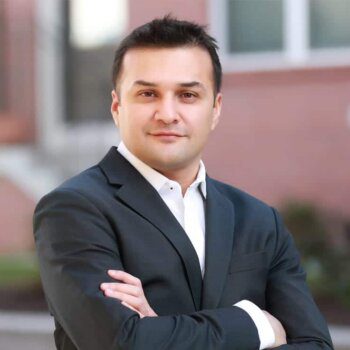Richard Noctis is a graduate of the Joint Management and Global Entrepreneurship Program facilitated by the University of San Francisco, Fu Jen University and Instituto Quimic de Sarria. Richard is also an alumni of the Chinese Executive Leadership Academy in Pudong. Richard has a colorful background in various areas of business, specifically in the fields of business development and human resources. From his context, Richard co-founded Dulitatitu with his business partner, Sally Sun.
Richard speaks to the Asian Entrepreneur today about his business Dulitatitu.
What is Dulitatitu and what do you guys do?
DT works with European designers and suppliers to bring handbags, shoes, and accessories from the European market to Taiwan. We focus on designers with a unique perspective that have a long history of quality in Europe, but that have not yet entered the Taiwanese market.
And how did the idea for Dulitatitu come about?
Dulita Titu originated in Barcelona, Spain after its founders fell in love with the enchantments of its buildings, the warmth of its people and the beat of its nightlife. Its name originates from the latin phrase “Credulitas Fortitudo” with means “Strong Belief” and our brand encourages people to have a strong belief in what they think is important in their lives. The brand thrives by introducing specially selected European styles to Taiwan. It partners with vendors, designers and suppliers that have a unique sense of what the European market has to offer. It is through these relationships and a meticulous product selection that it can bring the very best styles to Taiwan.
Dulita Titu also recognizes that there are also great designers within the region and it is always on the lookout for individuals whose designs embody the European spirit. The company’s ultimate goal is to influence the interaction and cooperation between Taiwanese and European fashion. It aims to influence the regional perspective, and strives towards the attainment of fashion that enchants, comforts and excites all those who have a strong belief in the pursuit of their goals and dreams.
How was the market reception initially?
“What’s the name of that brand?” We were in “educating the market mode.” There a lot of great European designers that have not been introduced to the Taiwanese market. Everyone knows of the big named brands, but there are many designers that have a long history and are very popular in Europe that the general market in Taiwan is simply unaware of. For this reason we had to educate the market and let the quality of the products and their unique styles speak for themselves.
What was the major challenge you faced when Dulitatitu was first started?
Approaching designers and wholesalers in Europe was a little intimidating at first. We were a little hesitant because we were not too sure about their processes, but we soon found out that they are all different and that you just have to adapt as you go along. Logistics was also a bit of a challenge, but we were able to get a lot of guidance from a company called Icontainers in Spain. In Taiwan, our biggest challenge has been educating the market to the European brands that they are not very familiar with.
How did you guys overcome this challenge?
It’s amazing how common passions and interests just make things work. That, and having a cup of coffee with someone. We tried to connect with designer’s and wholesalers that were passionate about their brand and friendly. We communicated our plans and they have helped us achieve them as well. We developed a relationship with them and truly admire and enjoy working with them. As for educating the Taiwanese market to European brands, it is still a work in progress, but we are up to the challenge.
Tell us about the fashion industry in Taiwan.
Due to the lack of professional aesthetics training in the past, most Taiwanese rely more on outside resources and fashion opinions. The topography has also had an effect; as we are close to Japan and Korea, they each have a strong influence in the market with their fashion and pop culture. They also compete with affordable prices, in comparison to most Western fashion. One only needs to walk around popular stores to see their influence and established presence in the market. However, nowadays there are some outstanding Taiwanese designers, such as SHIATZY CHEN, who is a well-known international costume designer and a brand founder. These outstanding designers are focused on establishing their brand with the spirit of Taiwanese culture and bringing it to the global marketplace. In addition, some local textile manufacturers are starting to establish their own brand. They offer affordable prices and quality products to customers. They also promote their brand and products through the internet. It’s becoming popular for many Taiwanese to follow these “Local Brands”.
Therefore we believe Taiwan’s past fabric and textile OEM experiences and professional fashion sense, with a reformed educational system, will bring new talent to create a Taiwanese fashion sense that will have widespread acceptance in the world.
Do you think the industry is vastly different from the one in the West?
The fabric and textile of Taiwan factories used to focus on doing OEM and selling to foreign markets. Taiwanese manufactures seldom developed their own designer brands. However, they now possess the professional skills and competence for making their own products and establishing a brand.
In general, the fashion industry of the West is more mature and stable. About 70-80% of high-end brands come from the West. Western fashion, has established an undisputed status in the world. Some brands establish their image to glorify their family, company or country’s characteristics and symbols. They dedicate their professional specialty and keen fashion sense to their design work. Their educational system which has a stronger focus in aesthetics has also cultivated many excellent fashion artists, designers and experts. The West has branded their fashion design products ahead of us for many years. We can’t ignore the historical effort that the West has contributed to the world of fashion.
How have you guys managed to keep yourself relevant in this fast paced industry?
We work on new marketing campaigns on a routine basis in order to inform our existing customers and motivate new customers to visit our online store. We also educate ourselves on the new trends in fashion and the new designs coming out of the European market. Lastly, we attend fashion conferences to speak face to face with a myriad of professionals in the industry. Wherever we may find ourselves, we are always on the lookout for unique designs that provide a new perspective.
In regards to business development, what are you guys working on?
The sky’s the limit. We’re plan on growing our e-commerce platform and adding working with more designers. We are planning on opening up a few retail stores in the next year. We’re also developing a charity foundation under our parent company Fidessun that we are really excited about.
What’s the best part in opening retail stores?
Opening up a retail front is very exciting. Not only do you have to pick the perfect locations, but the interior designs of each store with a European flair will be a lot of fun to create.
What are some important insights that you’ve developed working on your startup?
I think Jim Collins from “Good to Great” is right in saying that progress takes time and that you have to keep pushing the flywheel. Once you are moving forward a little bit, you can use its momentum to do more with the same effort. In order to do this you have to find out the things that will give you the most return for your time spent and focus on those activities without getting distracted.
What drives Dulitatitu?
We love this industry, the constant innovation in fashion and working with designers. Designers are artists that share our passion and give us a new perspective on what can be considered elegant and beautiful. Every new creation is a way to see the world through their eyes and creativity.
Any parting words of wisdom for entrepreneurs out there?
I think they should use their time wisely, revisit their 80/20 routinely, and focus on their “Element” while delegating their weaknesses. Also, time is more valuable than money, but it’s also relative. Spend it with even more caution than you would spend your money. Have unwavering integrity and stay true to your beliefs. Focus solely on what you can be the best at and what you are truly passionate in, the rest will take care of itself.
Connect with Richard Noctis and Dulitatitu today:
Website: http://dulitatitu.com/
Facebook: http://www.facebook.com/dulitatitu
